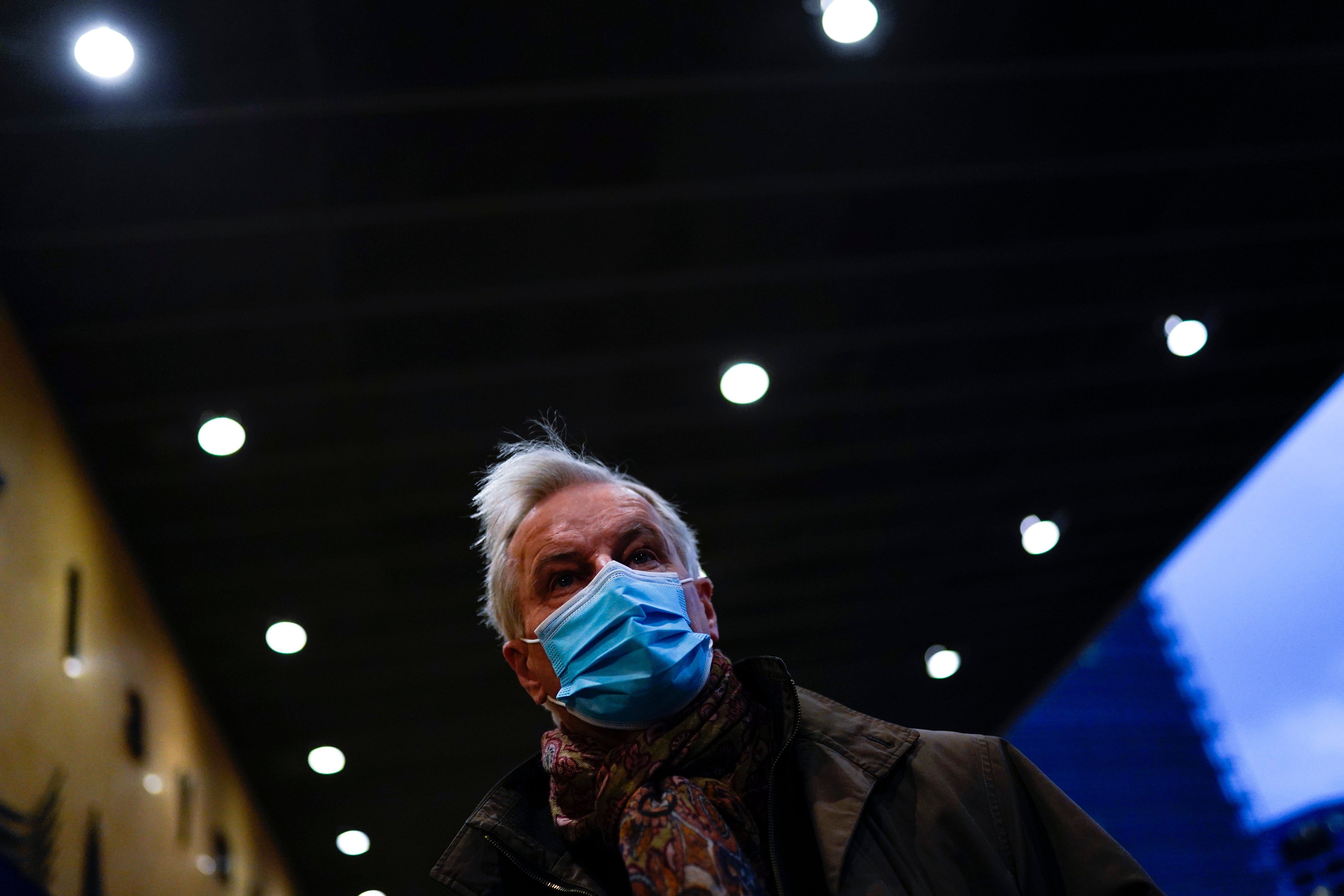EU chief negotiator still sees hope to clinch EU-UK deal
European Union chief negotiator Michel Barnier says he still has the firm belief that a Brexit trade agreement is possible, and has whittled the outstanding disputes to be settled ahead of the New Year to just two

Your support helps us to tell the story
From reproductive rights to climate change to Big Tech, The Independent is on the ground when the story is developing. Whether it's investigating the financials of Elon Musk's pro-Trump PAC or producing our latest documentary, 'The A Word', which shines a light on the American women fighting for reproductive rights, we know how important it is to parse out the facts from the messaging.
At such a critical moment in US history, we need reporters on the ground. Your donation allows us to keep sending journalists to speak to both sides of the story.
The Independent is trusted by Americans across the entire political spectrum. And unlike many other quality news outlets, we choose not to lock Americans out of our reporting and analysis with paywalls. We believe quality journalism should be available to everyone, paid for by those who can afford it.
Your support makes all the difference.European Union chief negotiator Michel Barnier said Monday he still has the firm belief that a Brexit trade agreement is possible, and whittled the outstanding disputes to be settled ahead of the New Year to just two.
Barnier said that the nine-month negotiations had come down to finding settlements on fair-competition rules and fishing rights, no longer mentioning the issue of legal mechanisms for resolving future disputes that also long dogged the negotiations.
“Two conditions are not met yet," he said as he entered a meeting to brief the 27 EU nations on progress in the talks. He is expected to continue negotiations with his U.K. counterpart David Frost later on Monday. “This deal it is still possible," he added.
Both sides are teetering on the brink of a no-deal Brexit departure, but have committed to a final push ahead of Jan. 1, when a transitional period following Britain's Jan. 31 departure from the bloc is to end.
On Sunday, British Prime Minister Boris Johnson and EU Commission President Ursula von der Leyen ditched a self-imposed deadline and promised to “go the extra mile” to clinch a post-Brexit trade agreement that would avert New Year’s chaos and costs for cross-border commerce.
Barnier is willing to accept British trade with no tariffs or quotas, but only if they respect the rules and regulations that have made the EU's single market of almost 500 million consumers so successful. “Free and fair competition, fair and free, equitable and open, the two go together," Barnier said.
Johnson, however, says he does not want British business to be hemmed in by EU restrictions, especially if those restrictions would have to be progressively adapted to mainland standards in the future.
On fisheries, Barnier demanded “an agreement that guarantees a reciprocal, I insist, reciprocal access to markets and waters." It highlighted that just as EU fishermen crave to continue working in British waters, the U.K. seafood industry is extremely dependent on exports into the 27-nation bloc.
Johnson has made fisheries and U.K. control over its waters a key demand in the long saga of leaving the EU. It has been four-and-a-half years since Britons voted narrowly to leave the EU and — in the words of the Brexiteers’ slogan — “take back control” of the U.K.’s borders and laws.
Johnson said over the weekend that the “most likely” outcome was that the two sides wouldn’t reach a deal and would trade on World Trade Organization terms, with the tariffs and barriers that would bring.
Exporters and importers face customs declarations, goods checks and other obstacles. EU citizens will no longer be able to live and work in Britain without a visa — though that doesn’t apply to the more than 3 million already there — and Britons can no longer automatically work or retire in the EU.
Without a deal, the disruption would be far greater. The U.K. government has acknowledged a chaotic exit is likely to bring gridlock at Britain’s ports, temporary shortages of some goods and price increases for staple foods. Tariffs will be applied to many U.K. goods, including 10% on cars and more than 40% on lamb, hurting the U.K. economy as it struggles to rebound from the impact of the coronavirus pandemic.
___
Follow all AP stories on the Brexit trade talks at https://apnews.com/Brexit
J